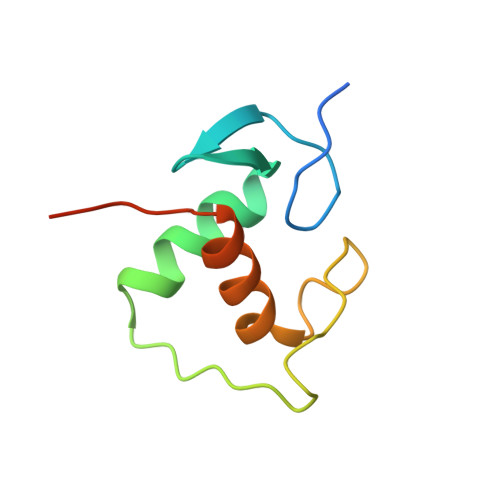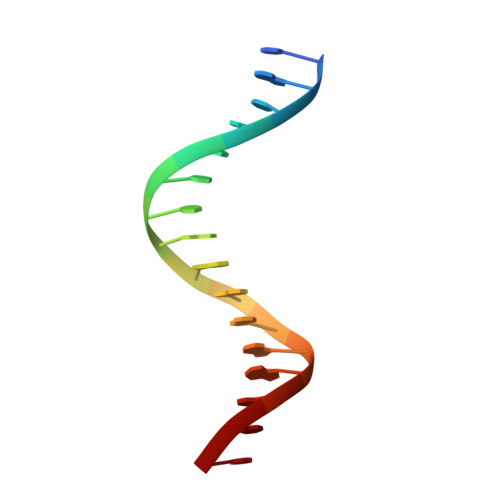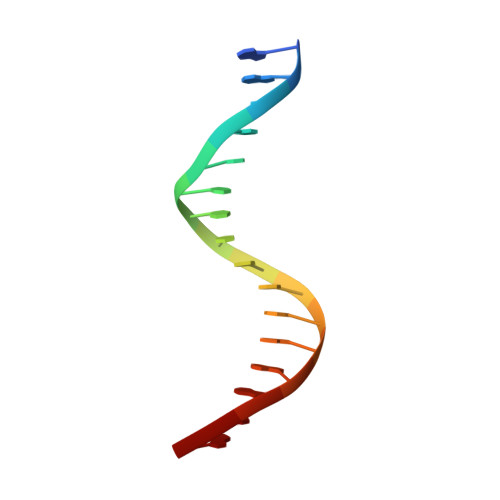Distal substitutions drive divergent DNA specificity among paralogous transcription factors through subdivision of conformational space.
Hudson, W.H., Kossmann, B.R., de Vera, I.M., Chuo, S.W., Weikum, E.R., Eick, G.N., Thornton, J.W., Ivanov, I.N., Kojetin, D.J., Ortlund, E.A.(2016) Proc Natl Acad Sci U S A 113: 326-331
- PubMed: 26715749
- DOI: https://doi.org/10.1073/pnas.1518960113
- Primary Citation of Related Structures:
5CBX, 5CBY, 5CBZ, 5CC0, 5CC1 - PubMed Abstract:
Many genomes contain families of paralogs--proteins with divergent function that evolved from a common ancestral gene after a duplication event. To understand how paralogous transcription factors evolve divergent DNA specificities, we examined how the glucocorticoid receptor and its paralogs evolved to bind activating response elements [(+)GREs] and negative glucocorticoid response elements (nGREs). We show that binding to nGREs is a property of the glucocorticoid receptor (GR) DNA-binding domain (DBD) not shared by other members of the steroid receptor family. Using phylogenetic, structural, biochemical, and molecular dynamics techniques, we show that the ancestral DBD from which GR and its paralogs evolved was capable of binding both nGRE and (+)GRE sequences because of the ancestral DBD's ability to assume multiple DNA-bound conformations. Subsequent amino acid substitutions in duplicated daughter genes selectively restricted protein conformational space, causing this dual DNA-binding specificity to be selectively enhanced in the GR lineage and lost in all others. Key substitutions that determined the receptors' response element-binding specificity were far from the proteins' DNA-binding interface and interacted epistatically to change the DBD's function through DNA-induced allosteric mechanisms. These amino acid substitutions subdivided both the conformational and functional space of the ancestral DBD among the present-day receptors, allowing a paralogous family of transcription factors to control disparate transcriptional programs despite high sequence identity.
Organizational Affiliation:
Department of Biochemistry, Emory University School of Medicine, Atlanta, GA 30322;

















